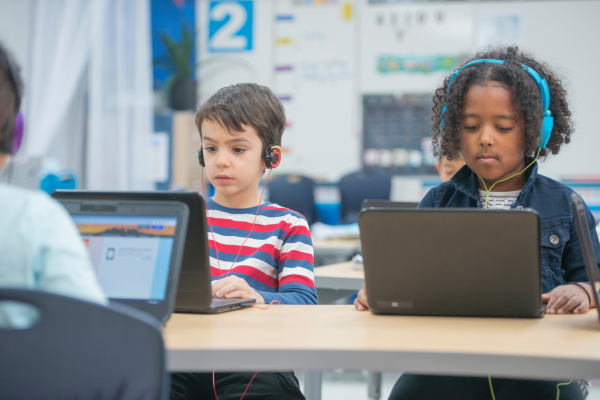Guest Post: Food - The Most Essential School Supply
August 31, 2023
This guest blog post is brought to you by Laura Hatch, Senior Director of Policy & Partnerships at FoodCorps
As a parent, I love a good school supply list. It is comforting knowing that our school teachers, administrators, and staff have spent so much time preparing to guide our children through the next year of learning and growing — both academically and emotionally. Recently, as I perused this year’s list, I paused to wonder why, among the essential supplies—like notebooks, pencils, and headphones—one thing seemed to be missing: food.
We know that hungry kids (and adults!) can’t learn. School breakfast and lunch programs exist to ensure students are nourished so they can thrive in the classroom and stay energized all day—avoiding that mid-morning and afternoon slump. Aside from nourishing stomachs and minds, can food play a larger role in a student’s academic development? The answer is a simple and emphatic yes!
FoodCorps: Partnering with school districts to bring food education to life: FoodCorps is an organization that partners directly with schools to teach kids about growing, cooking, and eating nourishing food. We also advocate for broad investment in food education, like policies that recognize the value of experiential cooking and gardening lessons.
Why? We have seen firsthand that hands-on food education helps to meet students’ needs for play and social connection and supports their emotional growth, a must for a supportive learning environment. In short, experiential lessons with food allow students to try new foods and build their confidence to explore new things in the classroom. Connecting over food, especially foods that reflect their culture, creates a sense of belonging and builds community. The benefits of food education go far beyond learning about nutrition and how to prepare healthy snacks and meals, a great benefit on its own—they also show up during math tests, science experiments, and writing assignments.
An educator in New York shares the power of food education and its link to overall learning:
“More than half of teachers are saying students who are positively engaged in food education lessons are more engaged in other academic lessons afterwards. Social emotional skills, leadership, communications, critical thinking—students are learning these skills with food ed lessons and it is having a ripple effect in the classroom and with other subjects.”
Food education in action: FoodCorps places AmeriCorps service members in schools and districts across the country to deliver lessons that align with Next Generation Science Standards (NGSS) and Common Core State Standards (CCSS). FoodCorps members help students make the connection between experiential learning in the garden and more traditional classroom concepts (such as science and math). They also support students in getting familiar with new menu items as they are served in the cafeteria. This mitigates plate waste and ensures recognition and student choice as new features roll out in the school lunch line.
Reaching all children: While FoodCorps is thrilled to have close to 200 members serving this 2023-24 school year, we know that doesn’t cover the number of students across the country. That’s why our organization works to influence policy change at the local, state, and national levels. FoodCorps advocates for legislation that:
- Removes barriers to school meals access;
- Supports increased school meal funding, including kitchen infrastructure and equipment;
- Increases access to locally grown ingredients, supporting local farmers and students;
- Creates more dedicated staff positions at schools to deliver hands-on food education; and
- Strengthens and integrates food and nutrition education into curricula and standards.
FoodCorps’ ambitious goal is that by 2030, every child will have access to food education and nourishing food in school.
As Heidi Sipe, superintendent of Umatilla School District, Oregon, shares:
“I think it’s really important for our kids to be exposed to a huge variety of foods. Our kids can become guides to their parents … and talk about food with them. That’s a connection for them as well. It helps everyone appreciate living together in our community. Food is such a connector and I love that.”
FoodCorps is always exploring new district partnerships as we thoughtfully plan and expand our service locations. Additionally, we are working to provide resources and training opportunities to schools and districts with or without a FoodCorps member. Here are a few resources to introduce you to our approach that you can use in your classrooms now:
- FoodCorps lessons: FoodCorps’ suite of 96 lessons for grades K-5 are intended to spark inquiry and love of nourishing food, and can be adapted to reflect the needs, identities, and cultures of the community in which they are taught.
- Taste test guide: A step-by-step guide to conducting taste tests to engage student voice and choice, encourage consumption of nutritious menu items, and reduce plate waste in the cafeteria.
- Upcoming advocacy moments: Superintendents and school administrators are powerful voices to elevate the needs of students in schools. We’d love to hear from you about how food shows up in your district in positive ways and invite you to get involved in raising your voice with policymakers.
Thank you for all that you do to support our learners. We wish you the best for the 2023-24 school year and we hope to work with you in the future!
Author



